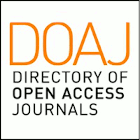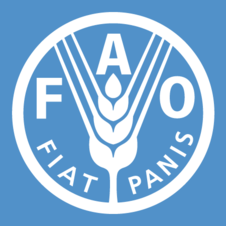TRIGLICERIDOS DE CADENA MEDIA EN EL TRATAMIENTO DE OBESIDAD
Resumen
En un diseño aleatorio simple se propuso como objetivo: determinar el efecto de los triglicéridos de cadena media (TCM) sobre la pérdida ponderal, cambios antropométrcios y séricos en obesos. Se estudiaron 24 sujetos de ambos sexos con edades de 25 a 38 años durante 3 meses. Se formaron 2 grupos; el grupo control con 11 sujetos, con régimen hipocalórico, lípidos (25%) en forma de
triglicéridos de cadena larga (TCL), fibra (25g/día) y ejercicio moderado. El grupo tratado con 13 sujetos, mismo régimen pero con TCM al 50% y TCL 50% del 25% total de lipidos. Se realizó evaluación nutricia y determinaciones de: colesterol total, HDL y LDL, triglicéridos, glucosa total, ácido úrico, triyodotironina, tirosina y tirotropina en suero. En orina se determinó cuerpos cetónicos y urea. El análisis antropométrico, en cuanto a la pérdida ponderal fué de 1.7 Kg mayor en el grupo tratado (3 kg vs 4.7 kg, grupo control y tratado respectivamente) pero sin diferencia significativa. La diferencia del área muscular de brazo aumentó en el grupo tratado (4.54 mm2 ± 18 tratado vs - 0.88 mm2 ± 21 control) aunque sin llegar a una diferencia estadística (P>0.05). El pliegue cutaneo tricipital presentó una disminución en el grupo tratado mayor que el control (-20.24 ± 19.6 vs -12.9 ± 24.7 respectivamente) sin diferencia estadística. En cuanto al perfil lipídico se observó una mayor disminución en el colesterol total, LDL y triglicéridos en el grupo tratado a diferencia del grupo control, aunque las diferencias no fueron estadísticamente significativas (P>0.05). La pérdida de peso, determinaciones bioquimicas y riesgo cardiovascular no presentaron diferencias significativas en ambos grupos por lo que los TCM no son mayormente eficientes que los TCL de buena calidad en una dieta hipocalórica.
Palabras clave. Obesidad, TCM, TCL, Pérdida ponderal, Lípidos. Obesity, MCT, LCT, weight loss, lipids.
Descargas
Citas
Roy, C.C., M. STE-Marie, L. Chartrand, A. Weber, H. Bard, and B. Doray 1975. Correction of the malabsorption of the preterm infant with a medium-chain triglyceride formula. J. Pediatr. Vol.
:446-450.
Durie, P.R., C.J. Newth, G.G. Forstner, and DG Gall 1980. Malabsorption of mediun Caín triglycerides in infants with cystic fibrosis. Correction with pancreatic enzyme supplements. J.
Pediatr. Vol. 96:862-864
Bach, A.C. and V.K. Babayan 1982. Médium chaim triglycerides: an update. Am. J. Clin. Nutr. Vol. 36:950-962.
Brindley, D.N. and N. Lawson 1983. Control of triglyceride synthesis. In the Adipocyte an Obesity Cellular and Molecular M. chanism. A. Angel, CH. Raven Press, New York. Hollenberg, and D A K Roncari, editors.
Maragoudakis, M.E., H.J. Kalinsky, and J. Lennane 1975. Metabolismo foctanoate and its effect on glucosa and palmitote utilization by isolated fat cells. Proc. Soc. Exp. Biol. Med. Vol. 148:606-610.
Bézard, J., and M. Bugaut 1986. Absorption of glycerides containing short, médium and long Caín fatty acids: permeation of médium Caín fatty acids. In: Kuksis A. ed. Fat absorption. Vol 1.
Boca Raton, FL:CRC press.
Fernando-Warnaklasuriya, G.J.P., J.E. Staggers, S.C. Frost, and M.A. Wells 1981. Studies on fat digestion, absorption, and transport in the suckling rat. I. Fatty acid composition and concentrations of mayor lipid components. J. Lipid. Res. Vol. 22:668-674.
Staggers, J.E., G.J. Warnakulasuriya, and M.A. Wells 1981. Studies on fat digestion, absorption and transport in the suckling rat. II. TRiacylglycerols: molecular species, stereosspecific analysis and specificity of hydrolysis by lingual lipase. J. Lipid. Res. Vol. 22:675-679.
Hamosh, M.J., T.H. Bitman, N.R. Liao, R.J. Mehta, D.L. Buczek, L.J. Wood, L.J. Grylack and P. Hamosh 1989. Gastric lipolysis and fat absorption in reterm infants: effects of medium chain triglyceride or long-chain triglyceride containing formulas. Pediatrics. Vol. 83:86-92.
Greenberger, N.J., J.B. Rodgers and K.J. Isselbacher 1966. Aborption of medium and long chain triglycerides: factors influencing their hydrolysis and transport. J. Clin. Invest. Vol.
:217-227.
Borgstrom, B. and J.S. Patton 1991. Luminal events in gastrointestinal lipid digestion In Handbook of Physiology. The gastrointestinal system. American Physiological Society, Bethesda. S
G Schultz, editor.
Isselbacher, K.J. 1968. Mechanisms of absorption of long and médium Caín triglycerides. In Médium Chain Triglycerides. University of Pennsylvania Press. J R Señor, editor.
Harkins, R.W. and H.P. Sarett 1968. Nutritional evaluation of medium chain triglycerides in the ret. J. Am. Oil. Chem. Soc. Vol. 5:26-30.
Clark, S.B. and P.R. Holt 1968. Rate-limiting steps in steady-state intestinal absorption of trioctanoin-114C. J. Clin. Invest. Vol. 47:612-623.
Guillot, E.P., P. Vaugelade, P. Lemarchal, and A. Rérat 1993. Intestinal absorption and liver uptake of medium chain fatty acids in non anaesthetized pigs. Br. J. Nutr. Vol. 69:431-442.
Greenberger, N.J. and T.G. Skilman 1969. Médium Caín triglycerides. N. Engl. J. Med. Vol. 280:1045-1058.
Sheing, R. 1968. Hepatic metabolismo f médium Caín fatty acids. In senior JR. ed. Medium chain triglycerides. Philadelphia: University of Pennsylvania Press.
Odle J, Benevenga N.J., and T.D. Crenshaw Utilization of medium-chain triglycerides by neonatal piglets:chain length of even and odd-carbon fatty acids and apparent digestion/absorption
and hepatic metabolism. J. Nutr. 1991. Vol. 121:605-614.
Odle, J., X.I. Lin, T.M. Wieland and T.A.T.G Van Kempen. 1994. Emulsification and fatty acid chain length affect the kinetics of [14C] medium-chain triacylglycerol utilization by neonatal piglets. J.
Nutr. Vol. 124:84-93.
Lieber, C.S., A. Lefevre, N. Spritz, L. Feinman, and L.M. Decarli 1967. Difference in hepatic metabolism of long and medium-chain fatty acids: the role of fatty acid chain length in the production of the alcoholic fatty liver. J. Clin. Invest. Vol. 46:1451-1460.
Sheig, R., and Klatskin. 1968. Hepatic metabolism of 1-14C octanoic and 1-14C palmitic acids. J. Am. Oil. Chem. Soc. Vol. 45:31-33.
Souza, P.F.A., and D.H. Williamson,. 1993. Effects of feeding medium-chain triacylglycerols on maternal lipid metabolism and pup growth in lactating rats. Br. J. Nutr. Vol. 69:779-787.
Lossow, W.J., and I.L. Chaikoff 1955. Carbohydrate sparing of fatty acid oxidation.I. The relation of fatty acid chain length to the degree of sparing. II. The mechanism by which carbohydrate spares the oxidation of palmitic acid. Arch. Biochem. Biophus. Vol. 57:23-40.
Metges, C.C., and G. Wolfram 1991. Medium and long-chain triglycerides lagbeled with 15C: a comparison of oxidation after oral or parenteral administration in humans. J. Nutr. Vol. 121:31-36.
Swift, L.L., J.O. Hill, J.C. Peters, and H.L. Greene. 1990. Médium Caín fatty acids: evidence for incorporation into chylomicron trigycerides in humans. Am. J. Clin. Nutr. Vol. 52:834-836.
Pégorier, J.P., P.H. Duée, C. Herbin, P.Y. Laulan, C. Bladé, J. Peret and J. Girard 1988. Fatty acid metabolism in hepatocytes isolated from rats adapted to high-fat diets containing long or
medium-chain triacylglycerols. Biochem. J. Vol. 249:801-806.
Bach, A. T., T. Phan, and P. Métais 1976. Effect of the fatty acid composition of ingested fats on rat liver intermediary metabolism. Hormone. Metab. Res. Vol. 8:375-379.
Seaton, T.B., S.L. Welle, M.K. Warenko and R.G. Campbell 1986. Thermic effect of mediumchain and long-chain triglycerides in man. Am. J. Clin. Nutr. Vol. 44:630-634.
Tantibhehedhyangkul, P., S.A. Hashim, and T.B. Van Ittalie, 1967. Effects of ingestion of longchain and medium chain triglycerides on glucose tolerance in man. Diabetes. Vol. 16:796-799.
Yost, T.J., and R.H. Eckel 1989. Hypocaloric feeding in obese women: metabolic effects of medium chain triglycerides substitution. Am. J. Clin. Nutr. feb; Vol. 49 No:2:326-330.
Rath, R.I., I. Skala and E. Rathova 1972. Metabolic aspects of the use of medium chain triglycerides in the use of medium chain triglycerides in the treatment of obesity. Z. Ernahrungwiss.
Vol. 13:16-124.
Gellebter, A., Torbay, N., Bracco, E.F. 1983. Overfeeding with medium-chain triglyceride diet results in diminished deposition of fat. Am. J. Clin. Nutr. Jan. Vol.37 No:1; 1-4.
Bray, G..A., M. Lee, and T.L. Bray 1980. Weight gain of rats fed medium–chain triglycerides is less than rats fed long-chain triglycerides. Int. J.Obes. Vol. 4: 27-32.
Turkenkopf, I.J., C.A. Maggio, M.R. Greenwood 1982. Effect of high fat weanling diets containing either medium-chain triglycerides or long-chain triglyceides on the development of
obesity in the zucker rat. J. Nutr. Jul. Vol. 112 No:7: 1254-1263.
Hill, J., J.C. Peters and D. Lin 1993. Lipid accumulation and body fat distribution is influenced by type of dietary fat fed to rats. Int. J. Obes. Vol. 17: 223-236
Lavau, M., V. Fornari, and S.A. Hashim 1978. Ketone metabolism in brain slices from rats with diet induced hyperketomenia. J. Nutr. Vol. 108: 621-629.
Nakamura, T., D. Yoshihara, and T. Ohmori 1994. Effects of diet high in medium chain triglyceride on plasma ketone, glocose, and insulin concentrations in enterectomized and
normal rats. J. Nutr. Sci. Vitaminol. Vol. 40: 147-159.
Bergen, S.S., S.A. Hashim and T.B. Van Itallie. 1966. Hyperketonemia induced in man by medium-chain triglyceride. Diabetes. Vol. 15: 723-725.
Bach, A., H. Schradin and A. Weryha, 1977. Ketogenic response to medium-chain triglyceride load in the rat. J. Nut. Oct; Vol. 107 No:10: 1863-1870.
Yost, T.J., and R.H. Eckel, Op. cit.
Rath, R.I. et. al., Op. cit.
Kaunits, H. 1978. Clinical uses of medium chain triglycerides.Drug. ther. Vol. 16:91-99.
Hill, J.O., J.C. Peters, L.L. Swift, D. Yang, T. Sharp, N. Abumrad, and H.L. Greene 1990. Changes in blood lipids during six days of overfeending with medium or long chain triglycerides.J. Lipid. Res. Vol. 31:407-416.
Cater, N.B., J.H. Howard and A.D. Margo 1997. Comparison of the effects of médium-chain triacylglycerols, palm oil, and high oleic acid sunflower oil on plasma triacylglycerol fatty acids and lipid and lipoprotein concentrations in humans. Am. J. Clin. Nutr. Vol. 65:41-45.
St-Onge, M.P., R. Ross, W.D. Parsons and P.J. Jones 2003. Medium-chain triglycerides increase energy expenditure and decrease adiposity in overweight men. Obes. Res. Mar; Vol. 11
No:3:395-402.
St-Onge, M.P., C. Bourque, P.J. Jones, R. Ross, and W.E. Pearsons, 2003. Medium-versus long chain triglycerides for 27 days increases fat oxidation and energy expenditure without resulting
in changes in body composition in overweight women. Int. J. Obes. Relat.Metab. Disord. Jan; Vol. 27 No:1:95-102.
Cater, N.B., et. al., Op. cit.
Megremis, C.J..1991. Medium chain triglycerides: a nonconventional fat. Food Technol. Vol. 45:108-114.
Senior, J.R. 1968. Introductory remarks by the chairman in medium chain triglycerides. University of Pennsylvania Press, Philadelphia;
Kaunits, H. Op. cit.
Gellebter, A., N. Torbay and E.F. Bracco 1983. Overfeeding with medium-chain triglyceride diet results in diminished deposition of fat. Am. J. Clin. Nutr. jan; Vol. 37 No:1; 1-4
Geliebter, A., N. Torbay and E.F. Bracco, E.F. 1984. Medium-chain triglyceride diet and obesity. Int. Obes. Vol. 8:191-192.
Ling, P., K.J. Hamawy, and L. Moldawer 1986. Evaluation of the proteín quality of diets containing medium and long chain triglycerides in healthy rats. J. Nutr. Vol. 116: 343-349.
Babayan, V.K. 1989. Medium chain triglycerides.J. Am. Oil. Chem. Soc. Vol. 66: 73-86.
Hamosh, M., M.L. Spear, and J. Bitman 1991. Medium chain triglycerides: advantages and possibles drawbacks. In Inborn Errors of Metabolism. New York. Vevey Raven Press;
Encuesta Nacional de Nutrición 1999, página web http//www.insp.mx/
SAS. SAS/STAT User’ s Guide: Statistics SAS Inst. Inc. Cary. NC. 1990.
Geliebter, A., et al, Op. cit.
Ling, P.,et. al., Op. cit.
Babayan, V.K. Op. cit.
Hamosh, M., et. al., Op. cit.
Yost, T.J., and R.H. Eckel, Op. cit.
Rath, R.I., et. al., E. Op. cit.
Kaunits, H. Op. cit.
Hill, J.O., J.C. Peters, L.L. Swift, et. al.,. Op Cit.
Cater, N.B.,et. al. Op. cit.
St-Onge, M.P.,. R. Ross, et. al. Op, cit.
St-Onge M.P., C. Bourque, et. al. Op. cit.
Rath RI,et. al. . Op. cit.
Yost, T.J., and R.H. Eckel Op. cit.
St-Onge, M.P.,. R. Ross, et. al. Op, cit.
Bray G.A., et. al., Op. cit.
Turkenkopf, Maggio CA, et. al. Op.cit..
Hill J., J.C. Peters,and D. Lin Op. cit.
Nakamura T., et al., Op. cit.
Bergen S., Op. cit.
Yost T.J. and R.H. Eckel Op. cit.
Descargas
Publicado
Cómo citar
Número
Sección
Licencia
Los derechos del trabajo pertenecen al autor o autores, sin embargo, al enviarlo a publicación en la Revista Salud Pública y Nutrición de la Facultad de Salud Pública y Nutrición de la Universidad Autónoma de Nuevo León, le otorgan el derecho para su primera publicación en medio electrónico, y posiblemente, en medio impreso a la Revista Salud Pública y Nutrición. La licencia que se utiliza es la de atribución de Creative Commons , que permite a terceros utilizar lo publicado siempre que se mencione la autoría del trabajo y a la primera publicación que es en la Revista Salud Pública y Nutrición. Asimismo, el o los autores tendrán en cuenta que no estará permitido enviar la publicación a ninguna otra revista, sin importar el formato. Los autores estarán en posibilidad de realizar otros acuerdos contractuales independientes y adicionales para la distribución no exclusiva de la versión del artículo publicado en la Revista Salud Pública y Nutrición (p. ej., repositorio institucional o publicación en un libro) siempre que indiquen claramente que el trabajo se publicó por primera vez en la Revista Salud Pública, Revista de la Facultad de Salud Pública y Nutrición de la Universidad Autónoma de Nuevo León.










